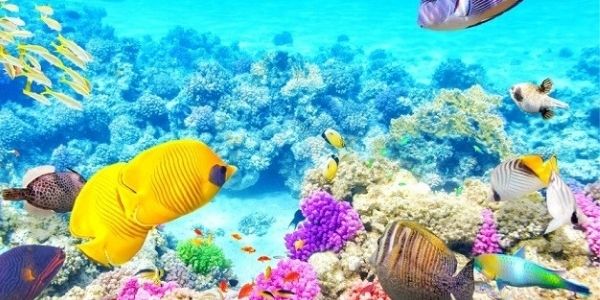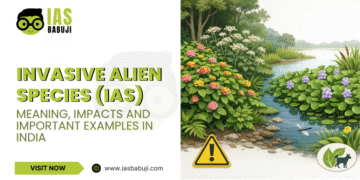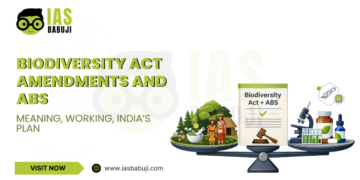To begin with, as a part of UPSC exam study materials, one needs to cover many concepts. As we all know, the IAS exam is one of the toughest exams in India. Further, it needs a lot of hard work to clear the exam. To add knowledge to your exam preparations, in this article, we will be talking about the Coral Reef, meaning, the types of coral reef, and its importance of the coral reef meaning. Therefore, this article will assist you by providing all the essential information for the UPSC exam. As we always mention, try to note all the crucial points while reading the article. Let us learn all the points related to the importance of the beautiful coral reef.
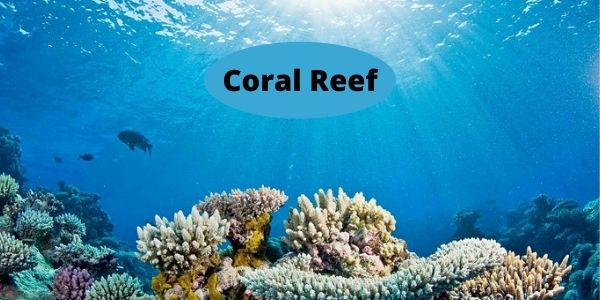
Coral Reef
Let us now understand what the meaning of the coral leaf is. A coral reef is an underwater ecosystem that the reef-building corals characterize. Further, they are formed of colonies of coral polyps, and they are held together by calcium carbonate. These are the large underwater structures composed of the skeletons of colonial marine invertebrates called coral. However, it has declined by 50% since 1950, and it is because they are sensitive to water conditions. They have a threat due to excess nutrients like nitrogen and phosphorus, rising ocean heat content and acidification, overfishing, sunscreen use, and harmful land-use practices.
Coral reefs’ annual global economic worth is approximately around US$30–375 billion.
Why is it essential for the IAS Exam?
Whenever we hear about the IAS exam, one thing that comes to our mind is it is one of the most challenging exams present in India; further, this exam comes up with a vast syllabus. Therefore, one needs to cover all the vital concepts for the exam. Our other articles have covered other important topics that will help you with the IAS exam preparations. In addition, we have added all details related to the IAS exam. For more information on the UPSC exam, one can go through the official website of the UPSC. Click Here.
Further, talking about the UPSC exam, if you are aware, there are three primary stages, and it is vital for one to clear all stages of the exam to become an IAS officer. However, there is a long procedure to get through. Therefore, one can refer to the official site for the complete details on the same. As it is important for one to understand all information about the exam before applying for the exam.
What is Coral Reef?
As we have mentioned earlier, coral reefs are formed of colonies and coral polyps. Further, coral species that are built-in reefs are called the hermatypic or complex because they extract calcium carbonate from seawater. It belongs to the class Anthozoa in the phylum Cnidaria. Further, the first coral reefs first appeared 485 million years ago, at the dawn of the Early Ordovician.
How have they formed?
Now, we have understood coral reef meaning and other related things. We will now understand how coral reefs are formed. They were created after the Last Glacial Period, when melting ice caused the sea level to rise and flood continental shelves.
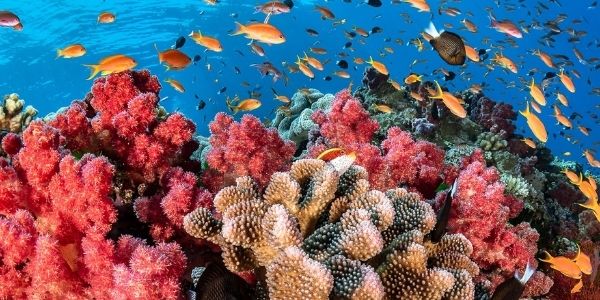
Coral Characteristics
Look into below points for the characteristics
- The coral reef has a symbiotic relationship with photosynthetic algae called zooxanthellae, which live in their tissues.
- Further, the coral has a protected environment, and the compounds zooxanthellae need for photosynthesis.
- The deep seal corals live in much deeper or colder oceanic waters and lack zooxanthellae.
Types of Coral Reef
Let us now understand the various types of coral reefs below.
- The fringing reef is the most common and is also called the shore reef. It is directly attached to a shore or borders it with an intervening narrow, shallow channel or lagoon. Further, this type of reef forms on the beach at the low water level and expands as they grow in size.
- Barrier Reef – These resemble the later stages of a fringing reef with its lagoon, and these are separated from a mainland or island shore by a deep channel.
- Platform Reef – These types of reefs are found in the southern Great Barrier Reef, the Swain and Capricorn Group on the continental shelf, about 100–200 km from the coast. Further, these are called the bank or table reefs, which can form on the continental shelf. They are found within atolls.
- Atoll – These are like a more or less circular or continuous barrier reef that extends around a lagoon. Atolls are present in the Indian Ocean, for example, in the Maldives, Chagos Islands, Seychelles, and Cocos Island.
Further, they are other types of the Coral Reefs
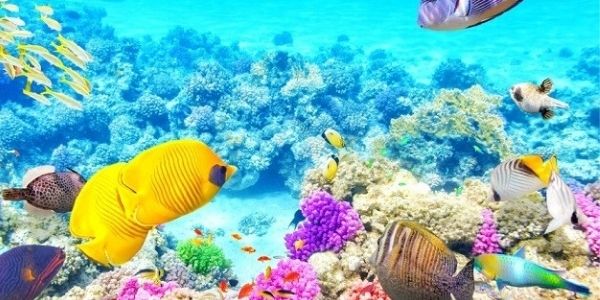
- Apron Reef
- Bank Reef
- Patch Reef
- Ribbon Reef
- Habili
- Cays
- Microatoll
- Seamount
Importance of Coral Reef
Why they are important?
- Coral Reefs protect the coastlines from storms and erosion, provide jobs for local communities, and offer recreation opportunities.
- In addition, they are the source of food and new medicines. Also, over half a billion people depend on reefs for food, income, and protection.
- Fishing, diving, and snorkeling on and near reefs add hundreds of millions of dollars to local businesses.
- Further, the net economic value of the world’s coral reefs is nearly tens of billions of U.S. dollars per year.
Coral Reefs around the world
Below we have added some of the most beautiful Coral Reefs across the world.
- Great Barrier Reef, Australia – This reef is one of the most beautiful reefs in the world. It has over 3,000 individual reef systems, complete with abundant colorful marine life and 400 types of coral.
- The Maldives – It comprises 1,200 islands and 26 atolls; the waters present a beautiful landscape of corals and a vibrant array of marine life.
- Rainbow Reef, Fiji – It is located between the second and third largest islands of Fiji, Vanua Levu and Taveuni. Further, there are 230 hard and soft corals and close to 1,200 fish species.
- Tubbataha Reefs Natural Park – This is made of an underwater landscape made up of vibrant corals and marine life. Further, Tubbataha Reefs in the Philippines is known as a top diving site in the world.
- The Red Sea Coral Reef, Red Sea – It is an undersea world located in between two arid deserts in the world, the Sahara and the Arabian. This reef is approximately 1,200 miles long and is over 5,000 years old.
Conclusion – Coral Reef
In summary, by reading the above article, you will find all information related to the importance of coral reefs meaning and all the other related information. These all will help you with the IAS exam preparation. However, it is not possible to remember all things, but one can at least understand which are the vital points concerning the IAS exam. As we have mentioned earlier, try to note down all issues that will help you with exam preparations.
Further, know more details on the UPSC exam study materials. We have tried covering all information for the IAS exam. One needs to give mock tests to better understand the concepts.
Many platforms offer you test series and mock tests. Therefore, make the best use of it. Along with that, one needs to follow up on some exam strategies to get the best results again. Many dreams of becoming the next IAS officer, and only a few can do it.
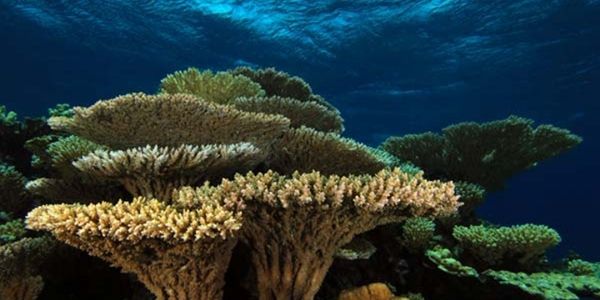
FAQs
1. Fringing reefs,
2. barrier reefs,
3. atolls,
4. and patch reefs.
Belize Barrier Reef, a coral reef that is second in size after the Great Barrier Reef of Australia
The Andaman and Nicobar islands is the largest coral reef in India and it is a 320 km long barrier reef.
India has four coral reef areas:
1. Gulf of Mannar,
2. Andaman and Nicobar Islands,
3. Lakshadweep Islands and
4. the Gulf of Kutch.
To prepare for the IAS exam, it is important for one to understand the exam syllabus and the pattern. Further, know which are the best books and start preparing for the IAS exam.
Editor’s Note | Coral Reef
In the article, we have covered details related to the Coral Reef meaning, the importance of coral reefs, and all the other related information. It will help you with the UPSC IAS exam preparations, we have also added the necessary links that will assist you with the exam preparations. As we all know the IAS exam, requires a lot of hard work and dedication to get the best results in the UPSC IAS exam. As the syllabus of the IAS exam is huge, it is essential for one to try to cover all the concepts to get the best results in the exam. It only depends on hard work and dedication. We wish you good luck with your IAS exam. Lastly, try to follow some exam tips for the best rank in the exam.

